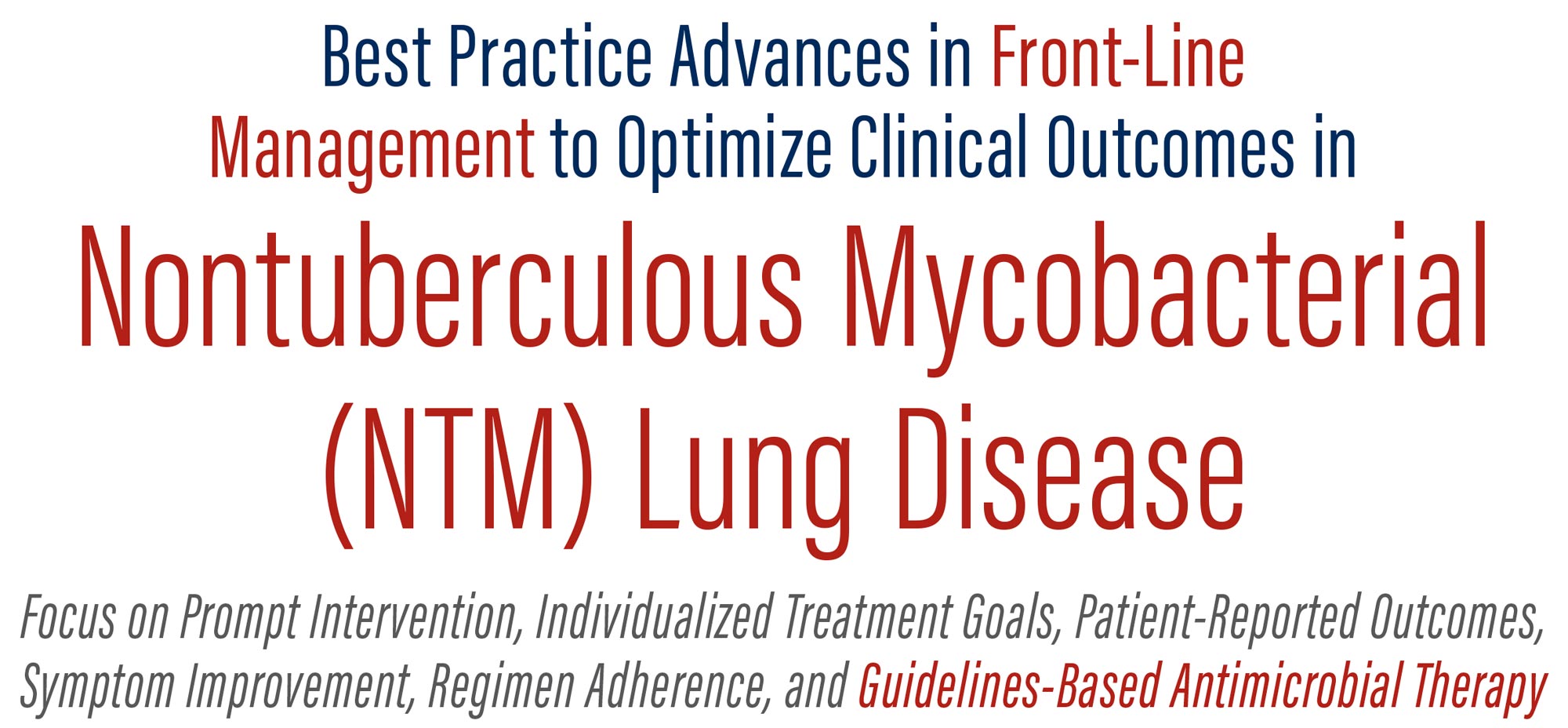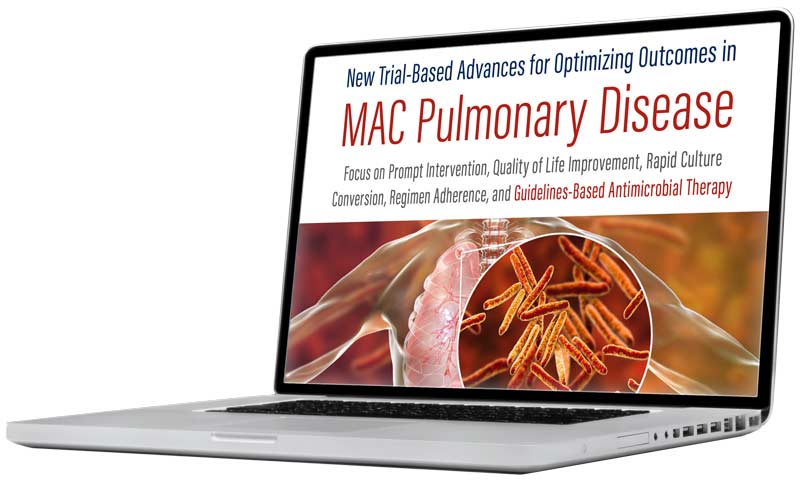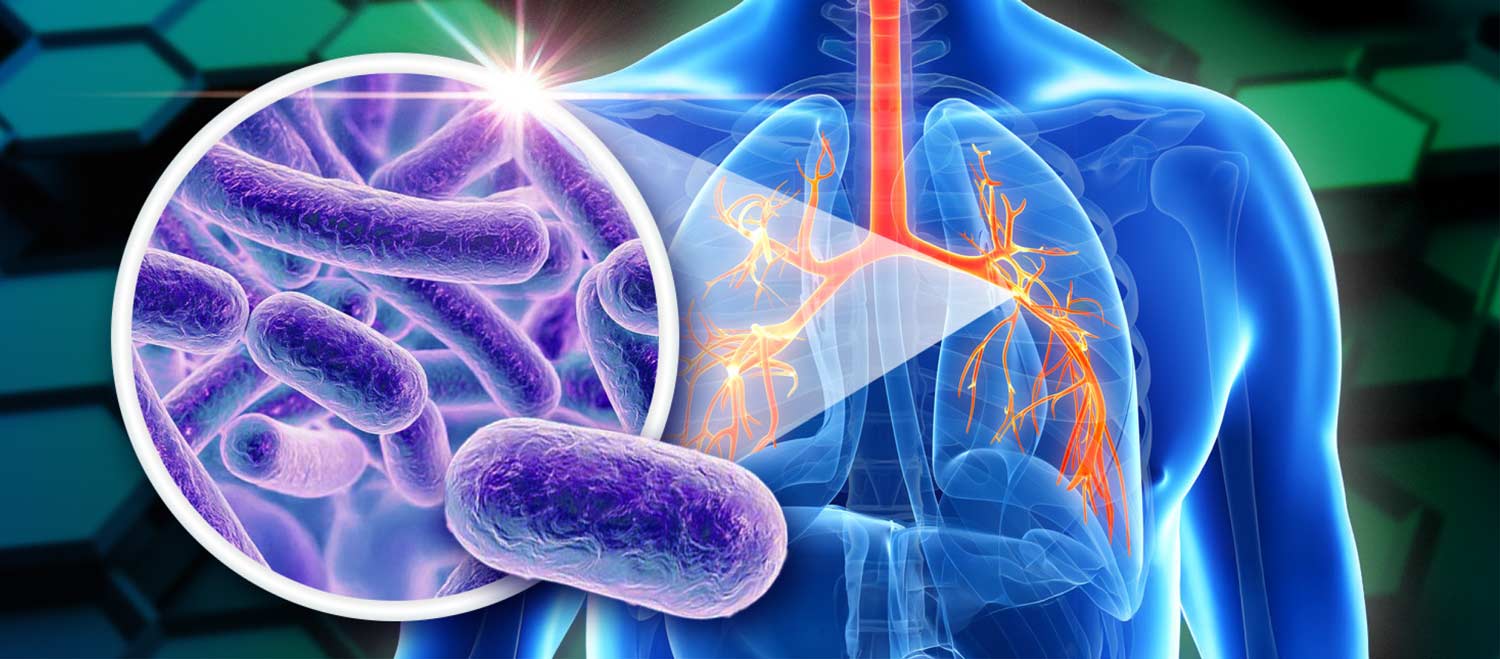SAVE THE DATE:
You and Your Respiratory, Infectious Disease and Pulmonology Colleagues are Invited to Attend
A MAC Lung Disease Lunchtime Symposium on

Evidence and Rationale for Inhaled Antibiotic Formulations in NTM Pulmonary Disease: Risk-, Limited Option-, and Severity-Driven Antimicrobial Administration, Time to Positivity (TTP), Adverse Event Management, and Facilitating Therapeutic Course Completion Among Persons with MAC Lung Disease
For more information:
registration@cmeducation.net

ERS declines all responsibility with respect to the
information published in this document
Save the Date for this Symposium Launch
Tuesday, 30 September, 2025
12:45 – 13:45 CET
Location: Atrium Hall

Program Agenda
12:45 hrs – 12:55 hrs
Chair’s Introduction and Program Overview
The Mandate for Individualized Care in Persons with NTM Lung Disease and Limited Options: Applying Risk and Severity-Directed Treatment Based on Time to Positivity (TTP), Radiographic Metrics, and Refractory Disease—When and How to Intensify Antimicrobial Therapies Based on Clinical Presentation and Microbial Testing
Professor Christoph Lange, MD
– Program Chair
Medical Director/Clinical Director
Research Center Borstel
Borstel, Germany
12:55 hrs – 13:10 hrs
Antimicrobial Decision-Making in MAC Lung Disease: Optimizing Treatment Outcomes and Microbial Conversion Based on Time to Culture Positivity (TTP), Systematic Microbiological Testing, and Radiologic/Bronchiectasis Severity Scores
Professor Stefano Aliberti
Professor
Humanitas University
Respiratory Consultant
Chief, Respiratory Unit, RCCS Humanitas Research Hospital Milan, Italy
13:10 hrs – 13:25 hrs
Translating Results of New MAC Lung-Focused Trials Evaluating Quality-of-Life (QoL-Bronchiectasis) Improvements, TTP, and Microbial Conversion Metrics to Optimize Antimicrobial Drug Selection: Aligning Trial-Based Advances with ERS Guideline-Directed Management Pathways for High-Risk Patients with Limited Options and/or Refractory MAC Pulmonary Disease
Professor David E. Griffith, MD
Professor of Medicine
National Jewish Health
Denver, Colorado, USA
13:25 hrs - 13:45 hrs
Interactive Clinical Case Studies: Applying New Trial-Based Evidence, Guidelines, and Individualized Approaches to Real World Management for MAC Lung Disease
Program Chair and Faculty

Distinguished Program Faculty
Professor
CHRISTOPH LANGE, MD – Program Chair

Medical Director/Clinical Director
Research Center Borstel
Borstel, Germany
Professor
STEFANO ALIBERTI

Professor in Respiratory Medicine
Humanitas University
Respiratory Consultant
Chief, Respiratory Unit, RCCS Humanitas Research Hospital
Milan, Italy
Professor
DAVID E. GRIFFITH, MD

Professor of Medicine
National Jewish Health
Denver, Colorado, USA
EDUCATIONAL AND LEARNING OBJECTIVES
Upon completion of this activity, participants will be able to:
- Understand and discuss the epidemiology and disease burden for NTM-PD and MAC Lung Disease based on prevalence, susceptible populations, and strategies for confirming the diagnosis of NTM-PD in the EU setting
- Outline the burden of MAC Lung Disease for patients and the healthcare system, especially in regions with high disease burden and poor recognition of this challenging condition
- Detail the pathophysiology of MAC infection, with a focus on intra-cellular macrophage reservoirs and pulmonary mechanics and architecture, and their implications for routes of antimicrobial administration
- Interpret and apply the Year 2020 Updated ATS/IDSA/ERS Guidelines for MAC and NTM Pulmonary Disease; and apply new antimicrobial guidelines and recommendations contained in the new ATS/IDSA/ERS clinical practice statements
- Compare and differentiate between the mechanism of action and delivery systems of different antimicrobial formulations and how these MOA will affect microbial conversion and eradication in MAC lung disease
- Identify patients and symptoms that suggest the need to evaluate and assess—microbiologically and radiographically—persons with COPD, bronchiectasis, history of TB and other co-morbid conditions that place them at high risk for acquiring MAC lung infection
TARGET AUDIENCE — WHO SHOULD ATTEND
This Clinical Excellence Summit is directed at the following: pulmonology, respiratory and infectious disease specialists and researchers and related healthcare providers who manage patients with Mycobacterium Avium Complex (MAC) Lung Disease.
GRANTOR SUPPORT
Supported by an educational grant from Insmed.
ACCREDITATION STATEMENT
This activity has been planned and implemented in accordance with the accreditation requirements and policies of the Accreditation Council for Continuing Medical Education (ACCME) through the joint providership of The University of Massachusetts Medical School and CMEducation Resources, LLC. The University of Massachusetts Medical School is accredited by the ACCME to provide continuing medical education for physician.
CREDIT DESIGNATION STATEMENT
The University of Massachusetts Medical School designates this enduring material for a maximum of 1.5 AMA PRA Category 1 Credits(s)™. Physicians should claim only the credit commensurate with the extent of their participation in the activity.
FACULTY & PROVIDER DISCLOSURE
The University of Massachusetts Medical School requires instructors, planners, managers and other individuals who are in a position to control the content of this activity to disclose any real or apparent conflict of interest (COI) they may have as related to the content of this activity. All identified COI are thoroughly vetted and resolved according to The University of Massachusetts Medical School policy. The existence or absence of COI for everyone in a position to control content will be disclosed to participants prior to the start of each activity.
